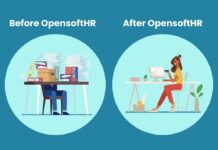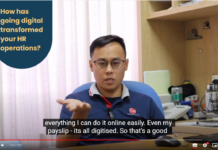What’s next for HR in Singapore?
The year 2021 has impacted people and businesses all over the world in more ways than one. In the world of HR, the pandemic has forced HR practitioners to rethink the way employees communicate with each other and even how they work – by ushering workforces into a COVID-19 period of telework, virtual meetings and online platforms to facilitate day to day operational transactions.
The pandemic has enforced digital transformation with exponentially increasing adoption of online tools to facilitate business continuity. It is likely that some of these new initiatives are here to stay, as we find success in communicating remotely.
We highlight some of the key measures that are here to stay and what HR in Singapore should look out for in the year of recovery ahead:
Replace Manual Processes & Paperwork with Platform-based Applications
With normalisation of carrying out most of our work online these days, it is only a matter of time that all HR operations are carried out online as well. This will include processing payroll and handling salary payouts, managing leave & claims of employees, fixing schedules and monitoring employee attendance, as well as generating and conducting appraisal reviews. With the use of online platforms, HR practitioners can also leverage on readily available automation tools to reduce the need for them to be involved in repetitive work or even to handle transactions that don’t value add much to their role.
For example the seemingly simple task of applying leave for an employee, if done manually, may become a tedious and long-winded one. However automating processes like these can plug all of these holes and with the transparency of having these transactions on a single online platform, it does offer employees and business owners alike much more confidence in the process by trusting that every task was completed and the data is accurate.
Government grants encourage adoption of online platform services
For businesses in Singapore, you will be able to tap on several government grants to subsidise the cost of your purchases. In addition, Enterprise Singapore is offering an additional subsidy of 90% off out of pocket costs when you actively seek to implement new measures that adopt technological tools and up skill your workforce next year.
Adoption of Flexible Work Arrangements
Prior to the year itself, employers did not offer long-term flexi-work out of fear that doing so would affect their productivity of their employees. Either that or the simple fact that employees were not trustworthy to work effectively at home. However having been through a mandatory lockdown in countries all over the world, employers now have somewhat gotten used to the concept of remote working – by making use of online communication tools such as Zoom to interact in real time with each other.
The workforce landscape is expected to change
Many envision the future workforce to be a flexible, dynamic and empowering place. For one, employers may be open to the idea of hiring more contract workers based upon upcoming projects rather than committing to long-term permanent employees who are often bound by rigid policies. In some ways this can be beneficial to flexi-workers who may opt to work comparatively less through job sharing, and have the freedom of committing to short term projects based on their interests, mirroring a growing freelance workforce which has been fuelled by a desire for better work-life balance and autonomy of their work.
End of AIS Offline Applications submissions from YA 2023
IRAS has announced that the AIS Offline Applications (including the Validation & Submission Java Application) will be decommissioned by calendar year 2023. From year of assessment 2023 onwards, companies must use a modern payroll software that supports direct AIS submissions to IRAS. Here is how you can make the switch to modern payroll solution and obtain the relevant government grants to support your migration efforts.
If you are still using the AIS Offline Applications (including the Validation & Submission Java Application), then it is necessary that you start looking into adopting payroll solutions that incorporate the new (and only!) method of submitting tax forms to IRAS – API (Corppass) Submission from IRAS YA 2023 onwards.
 Home
Home















